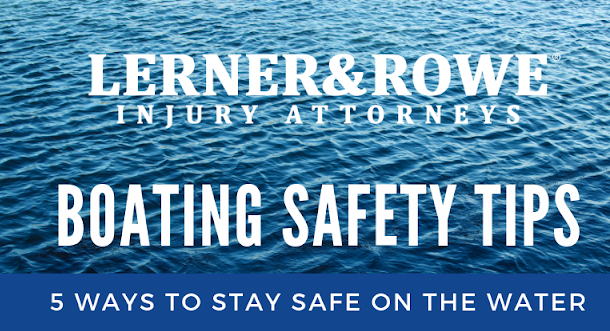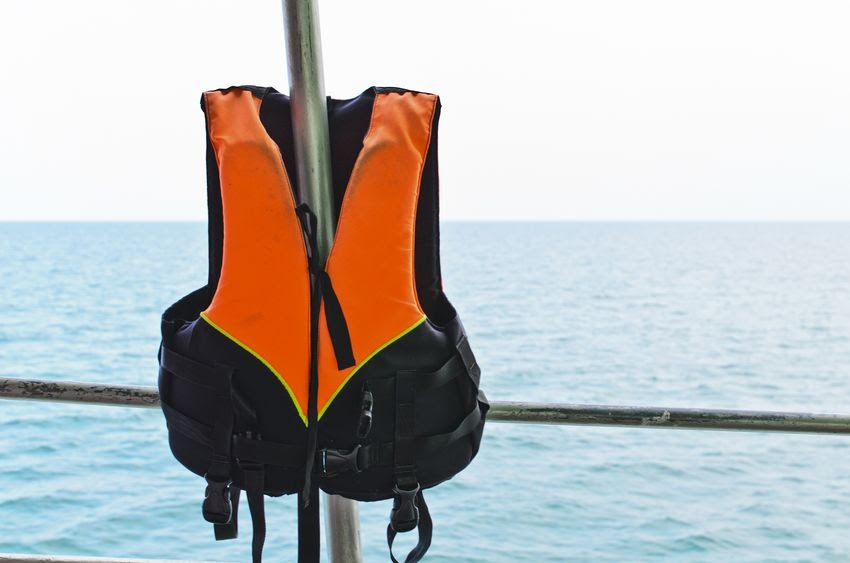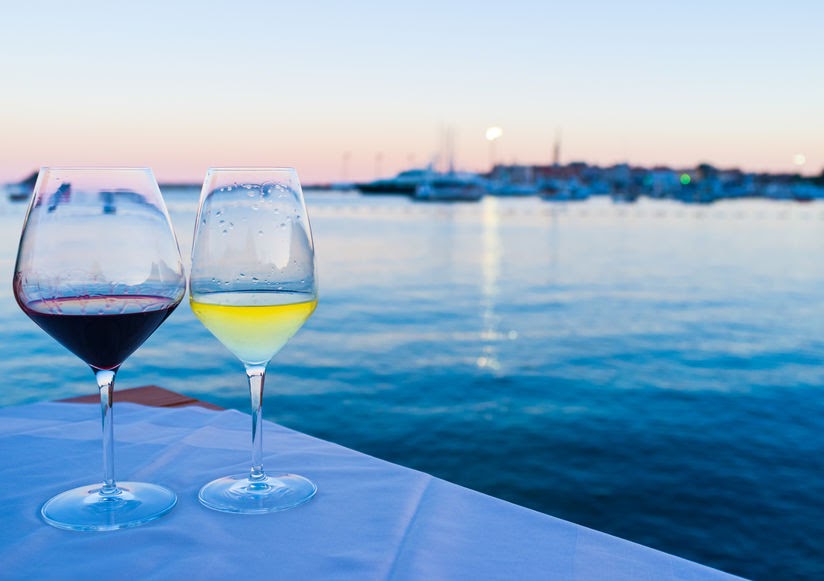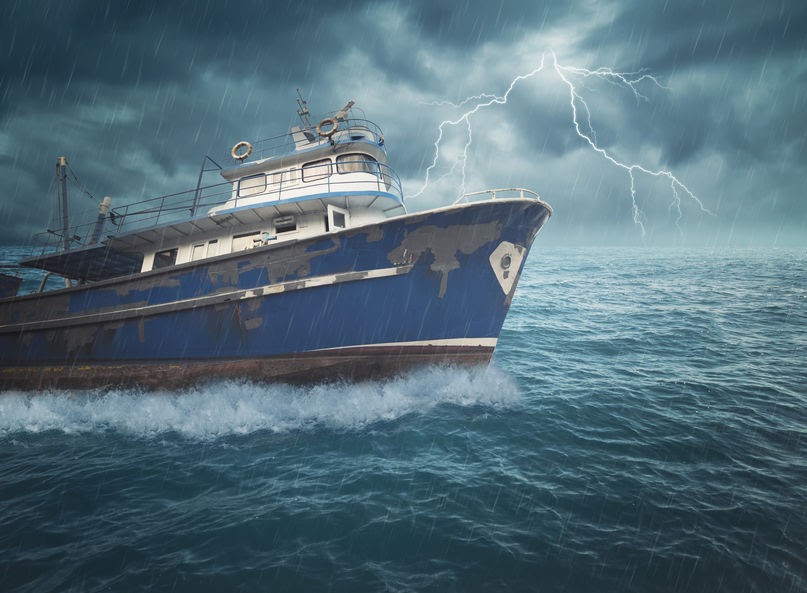
With so many great boating spots around Nashville, thousands of people have been heading outdoors to take advantage of local waterways with family and friends. Before you get behind the wheel of a boat, it’s important to understand boating rules, regulations, and safety tips to help prevent a boating accident in Tennessee.
In 2021, the Tennessee Wildlife Resources Agency (TWRA) reported more than 73 Tennessee boating incidents, including 22 deaths. These figures were down from 2020, which saw 158 boating injury accidents that resulted in 33 fatalities. To help drive that number down to zero, the Nashville boating accident lawyers at Lerner and Rowe offer the following safety tips.
 Any child under the age of 12 must wear a personal flotation device (PFD), also known as a life jacket, while on an open deck of a recreational boat in Tennessee, except in instances where the boat is anchored, moored, or aground. The life jacket must be approved for use by the U.S. Coast Guard (USCG).
Any child under the age of 12 must wear a personal flotation device (PFD), also known as a life jacket, while on an open deck of a recreational boat in Tennessee, except in instances where the boat is anchored, moored, or aground. The life jacket must be approved for use by the U.S. Coast Guard (USCG).
Although children over the age of 12 and adults are not legally required to wear a life jacket, USCG requires that each vessel carry at least one PFD for each person aboard the boat.
Life jackets must be kept on motorboats, rowboats, sailboats, canoes, and rafts and must be readily accessible in the event of an emergency. They must also bear the USCG stamp of approval and be the appropriate size and fit for each wearer.
Another note about life jackets—learn how to use them before you need them. Should the need for one arise, you don’t want to waste precious minutes trying to figure out how they work.
In addition to life jackets, there are some other safety items that are essential to have onboard your boat to prevent personal injuries in a boating accident in Tennessee.
• Throwable Flotation Device. Throwable flotation devices are required on boats that are 16 feet in length or longer (except for kayaks and canoes). Having at least one of these devices, such as a ring buoy, can prevent drowning if someone falls overboard or has trouble swimming.
• Fire Extinguisher. All water vessels over 26 feet long must have a Type B fire extinguisher on board. Certain boats under this length may still be required to have a fire extinguisher to reduce the risk of burn injuries.
• Navigation Lights. Both power-driven and unpowered vessels are required to display red and green sidelights in addition to a sternlight when operated from sunset to sunrise. Smaller boats should display an all-around white light. You should always bring backup flashlights as well, even if you’re planning on returning before nightfall.
• Sound Producing Devices. On boats more than 34.9 feet long, you must carry a whistle and a bell. Shorter vessels are not required to carry a whistle or bell, but have the means to make an efficient sound signal. Acceptable devices include a handheld air horn, athletic whistle, or an installed horn.
Consult the Handbook of Tennessee Boating Laws and Responsibilities for additional details regarding required safety equipment.

Per Tennessee Code Annotated §69-9-217, it is illegal to operate any boat or vessel which must be registered in the state of Tennessee on public waters while under the influence of any intoxicant, marijuana, narcotic drug, or drug producing stimulating effects on the central nervous system. This includes alcohol and any drugs which may be prescribed to you.
Anyone found to be in operation of a boat with a blood alcohol content (BAC) of 0.08 or more may be charged with boating under the influence. In the event of a boating accident in Tennessee, vessel operators may be subject to a breathalyzer or blood test to rule out inebriation as the cause of the accident.
Passengers, on the other hand, are allowed to drink on boats in Tennessee, provided that they are over the age of 21. However, remember to always have a designated driver to safely maneuver the boat. Passengers should consume alcohol responsibly, as boating injuries are much more likely when you’re intoxicated. In fact, alcohol use was the leading contributing factor in U.S. boating deaths in 2019. The safest course of action is to leave the booze at the shore!
er, it is highly advisable to purchase insurance for your water vessel. Like car insurance, a comprehensive boat policy should cover the following:
• Collision damage
• Property damage liability
• Bodily injury liability
• Protection against vandalism, theft, and non-collision damage
If you were born after 1989, you are required to obtain a Boating Safety Education Certificate after completing a boater safety course in order to operate a boat in Tennessee powered by an engine of more than 8.5 horsepower. Those operating sailboats and boats powered by an engine of less than 8.5 horsepower do not need a certificate.
Note: Children under the age of 12 are not permitted to operate a boat powered by an engine of more than 8.5 horsepower unless they are accompanied by someone over the age of 18. Young children should always be closely supervised when operating a watercraft.

Sometimes, bad weather comes out of nowhere. The forecast may call for clear blue skies, but conditions can change on a dime when you’re out on the water. Avoiding a boating accident in Tennessee requires planning for the unexpected and knowing what to do when plans change.
If you run into bad weather on the waterways, keep the following tips in mind:
• Put on your life jacket at the first sign of trouble. Make sure your passengers put on their life jackets, too.
• Head towards the shore if possible. If it’s too risky to reach the shore, drop an anchor, use a distress signal, and await help.
• Turn on all navigation lights if visibility is low.
• Secure all loose items on the boat if it is very windy. A seemingly harmless object can become a deadly projectile in high winds.
• Reduce your speed. Choppy waters and high speeds can lead to capsizing or taking on water.
• Approach big waves at a 45 degree angle to prevent getting swamped.
Instruct all boat passengers to stay away from the edges of the boat and sit along the boat’s centerline, which will help stabilize the boat and keep passengers from being thrown overboard.
Tip: Learn to spot the signs of an approaching storm. Signs include clouds, a darkening sky, lightning, and wind, usually coupled with a sudden drop in temperature.
You should have your boat serviced regularly—at least once per year—to prevent equipment failure, which can lead to boating accidents. The most important components of your boat are the engine, hull and topsides, electrical systems, plumbing or HVAC systems (in large boats), and moving parts (such as hinges, zippers, and tracks).
If you’re new to boating or just want to make sure your boat is in ship-shape, you should know that you can get a free vessel inspection by a member of the U.S. Coast Guard for your own peace of mind.
A Vessel Safety Check officer will look for the following:
• Life jackets
• Registration and numbering
• Navigation lights
• Ventilation
• Fire extinguishers
• Distress signals (flares, horn, etc.)
• Battery cover and connections
If your vessel does not pass the Coast Guard inspection, you won’t receive a citation. Instead, you’ll receive a written report on how to fix any problems, free of charge.
Were you or a loved one hurt in a boating accident in Tennessee because of someone else’s negligence? You may be entitled to compensation for your injuries. A Nashville boating accident lawyer can develop a winning case strategy to make sure you get the money you need for your medical bills, lost wages, and pain and suffering.
Call Lerner and Rowe Injury Attorneys today at 615-333-8888 or get in touch with us using our contact form. You can also take advantage of our LiveChat feature to talk to a representative. Consultations are always free, and we don’t collect a penny until we win your case.
The information on this blog is for general information purposes only. Nothing herein should be taken as legal advice for any individual case or situation. This information is not intended to create, and receipt or viewing does not constitute, an attorney-client relationship.



